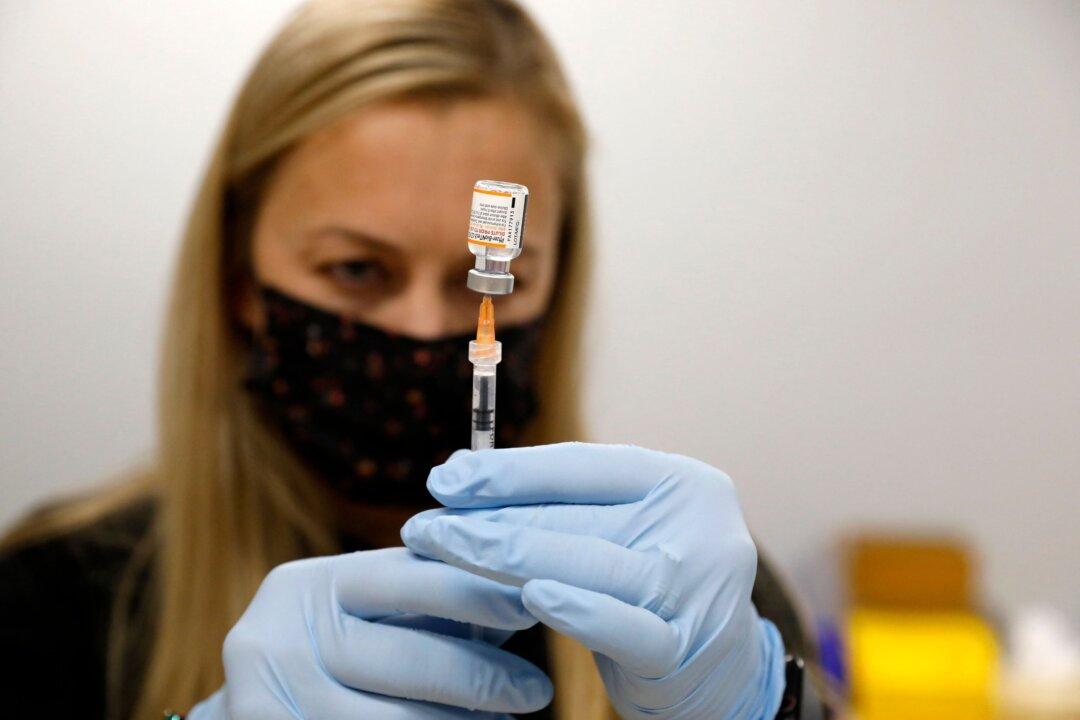The two most preferred COVID-19 vaccines in the United States are much less effective against the Omicron virus variant, a trio of new studies out Friday found.
The effectiveness of two doses of the Pfizer and Moderna COVID-19 vaccines dropped dramatically against both infection and hospitalization after Omicron became dominant in the United States late last year, researchers with the Centers for Disease Control and Prevention (CDC) and other health institutions said in one of the studies.





